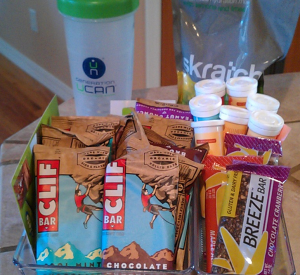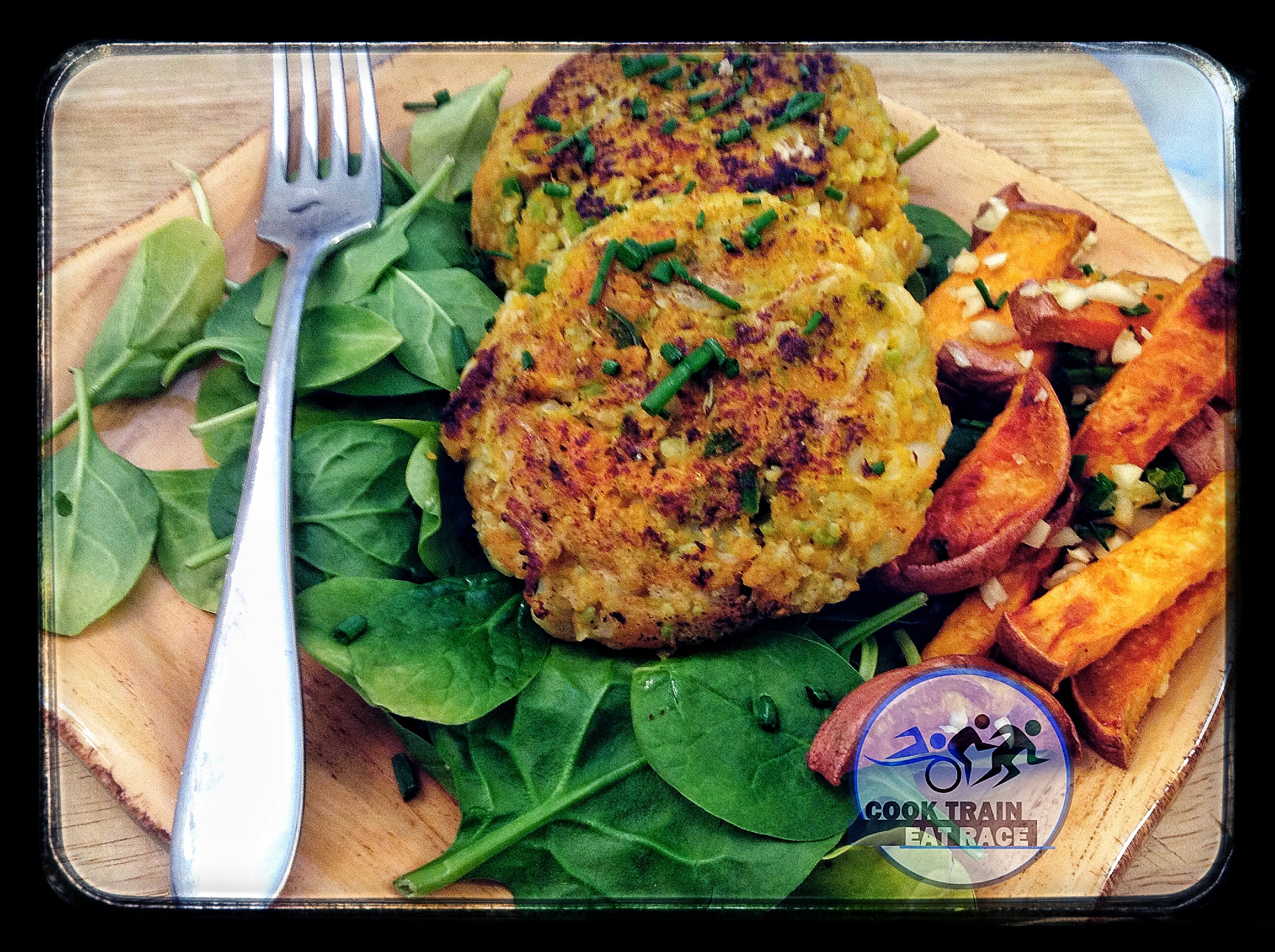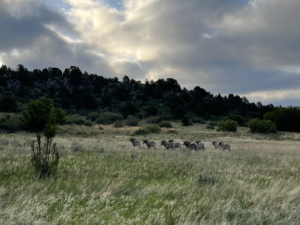
The last several weeks in the Friday Feast posts we’ve talked about race nutrition. In Part 1 we discussed things to keep in mind when trying to figure out what and how much to eat. In Part 2 we looked at various choices for nutrition options that are out on the market. Then we read about Jason’s plan for Ironman Texas and last week we learned what Dina consumed before and during her HITS Grand Junction half ironman race.
No two athletes will have exactly the same nutrition plan. We have different calorie needs and we have different foods we can tolerate.
The same athlete will have different nutrition plans for different events. The caloric demands for a century ride are quite different from a sprint triathlon.
To find what works for you, you need to experiment. Keep in mind that unless a plan was a disaster, don’t change too many factors at once. Keep a detailed log of what you are consuming, both before and during your training. (TrainingPeaks has some options for this. You can track your meals on the calendar, and you can also write in the workout comments what you ate and drank during your training.)
In addition to what you eat during your event, you should also think about what you eat the day before a race and the morning of the race. How your body responds to foods will vary, and you’ll find many different kinds of “pre-race” meals (or even rituals) out there. Just like your during race nutrition, you will want to test these meals to make sure they don’t cause any issues.
Another factor affecting race nutrition is environmental conditions, as they may change how your body responds to nutrition. If you aren’t able to train in similar conditions to your race (hot or cold temps, dry or humid environment) you might need to make some modifications to your plan for your event. Typically it is easier to eat more when it’s cooler out, though we tend to not drink enough in cooler temps. Often in hot temperatures is more difficult to digest nutrition and while we might drink more, we many not drink enough because we are losing more fluid than we realize.
Your race nutrition plan will likely always be evolving, and don’t be afraid to try new things. With experimentation (trial and error) and documentation of those trials, you should be able to set up a plan that works well for you.
Happy training, racing, and eating!





